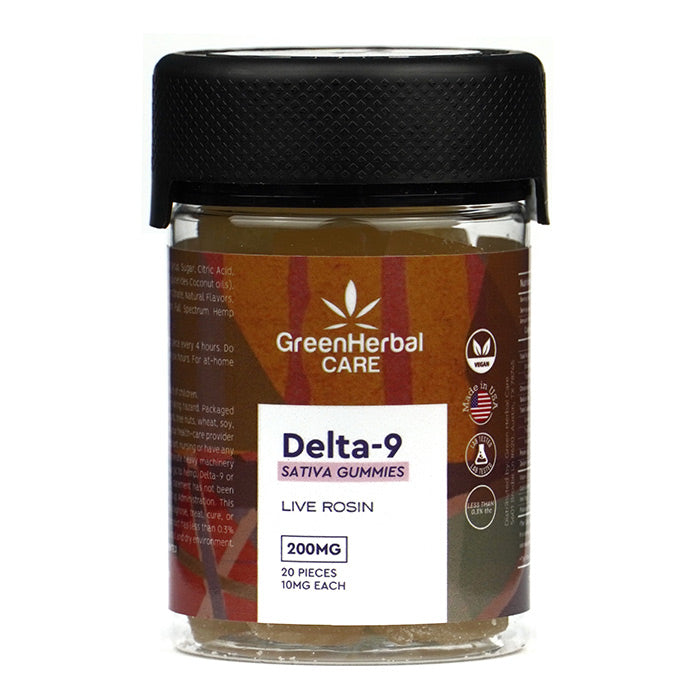A Senate committee of Texas unanimously advanced a recently introduced bill on Tuesday July 22 that would outlaw all hemp products containing any detectable amount of THC or any other cannabinoid besides cannabidiol (CBD) and cannabigerol (CBG), passing a proposal on a 10-0 vote that would impose a hemp product ban almost identical to the one vetoed by Gov. Greg Abbott last month.
Despite this recent veto, the governor reportedly mentioned on Tuesday that he is currently open to a widespread ban. The details behind this pivot, however, are murky at best, as his comments suggested that any product with a small amount of THC would remain legal – which would cease to be under the current legislation.
An Overview of Texas Vape Ban
What are the aspects covered in Texas vape ban? To be effective September 1, 2025, the Texas Senate Bill 2024 (SB 2024) enacts a full-fledged and inclusive ban on a wide range of vape products. Specifically, it prohibits:
- Vapes and flavored vapes manufactured in or marketed as originating from China, such as Lost Mary, Fifty Bar, and Geek Bar.
- Vapes that contain intoxicating substances other than nicotine, including hemp-derived cannabinoids other than CBG and CBD, such as HHC, Delta-8, Delta-9, Delta-10, THCA, etc.
- Vape products disguised as common household items like toys or cosmetics, especially those appealing to minors.
While attention focused heavily on the controversial Senate Bill 3 (SB 3), which aimed to institute a widespread prohibition on hemp-derived THC products across Texas and effectively eliminate the state’s huge hemp market, SB 2024 went mostly unnoticed as it quietly progressed through the legislature.
The SB 3 was ultimately vetoed after substantial bipartisan opposition, but Gov. Greg Abbott signed SB 2024 into law on June 20. Although a special legislative session in late July will address potential regulatory frameworks for an adult-use hemp market, SB 2024 ensures one product won’t even have the chance at regulatory consideration absent further legislative action or litigation: hemp-derived cannabinoid vapes.
What is Prohibited After September 1
The SB 2024, signed into law by Gov. Abbott on June 20, institutes a statewide ban on all vape or e-cigarette products that:
- Contain or are marketed as containing hemp-derived cannabinoids, alcohol, kratom, kava, mushrooms, or their derivatives;
- Are shaped or packaged in ways appealing to youngsters (such as toys or cosmetics); or
- Are manufactured in or advertised as from China or other designated foreign adversary nations
Violations like possessing THCA vapes will now be considered a Class A misdemeanor, carrying penalties up to one year in jail and fines up to $4,000 per offense. This is a higher penalty than previously imposed.
Why This Ban Took Effect
- The law to ban HHC vapes comes in the wake of Gov. Abbott’s veto of SB 3 earlier this year, in which he opposed broad THC bans and instead for regulated hemp-derived products (THC caps of ~3mg serving, age limits, child-limited packaging)
- Abbott remains supportive of a regulated framework, but key lawmakers, especially Lt. Gov. Dan Patrick and Senator Charles Perry, pushed for a full ban on intoxicating cannabinoids, leading to the passage of both SB 5 (Senate) and its companion HB 5 (House) during a special July session.
Impacts of the Ban
| Stakeholder | Impact Starting Sept 1, 2025 |
|---|---|
| Retailers & Manufacturers | Must divest or destroy any inventory of cannabinoid vape products, such as Delta-8 vapes and Delta-9 vapes; restrict certain packaging or foreign-made e-cigs |
| Consumers | Cannot legally purchase cannabinoid vapes – even trace THC – unless under the Texas Compassionate Use Program (TCUP) prescription exemption |
| Legal Penalties | Selling or possessing restricted vape products becomes a Class A misdemeanor, with much stricter enforcement than before |
What Remains Unbanned for Now
- Hemp products that are not meant to be inhaled, such as gummies, tinctures, topicals. Only items that do not contain THC are still legal, but they may be subject to other hemp regulation bills under consideration, such as Senate Bill 5, House Bill 5, etc.
- Governor Abbott continues to advocate for regulatory rather than prohibition-only policy, aligning with industry stakeholders seeking clarity and stability via labels, potency limits, and marketing safeguards.
Impact on Businesses and Consumers
Manufacturers and retailers of hemp vapes:
- Must remove or liquidate cannabinoid vape inventory before Sept 1, 2025.
- Risk Class A misdemeanors for violations – up to 1 year jail or $4,000 per offense.
Consumers:
- Users of THC vapes – Delta-8, HHC, THCA – will lose legal access in Texas.
- Products not meant to be inhaled remain accessible, but THC-infused vapes will be criminalized unless legal challenges arise.
Medical and wellness users:
- Veterans and other groups relying on legal hemp products have voiced strong opposition.
- Medical THC via licensed Compassionate Use Program remains exempt but limited.
Hemp vs. THC: What’s Still Exempt?
Under current rules:
- CBD oil, CBD gummies, tinctures, and topicals are still legal if they contain no detectable THC.
- Some products containing up to 0.3% Delta-9 THC may remain legal – but only if not inhaled or marketed as vapes.
- The Texas Compassionate Use Program still allows low-THC medical cannabis under doctor supervision.
Uncertainty and Opportunity
The Lone Star State remains in flux, as well as every THCA dispensary Texas. While SB 5 could pass and ban all hemp-derived THC products, including edibles, there is a strong public opposition. Gov. Abbott’s veto of SB 3 and call for regulated access reflect a compromise: allowing legal access while protecting public health and industry growth.
Advocated argue banning hemp vapes will drive users underground – not deter use – and spell economic disaster for the state’s $8 billion hemp market, including Texans growing, processing, or selling compliant THC products.
The unfolding legislative process and public response suggest a more regulated, but still legal future for hemp products in Texas that need not be inhaled.





